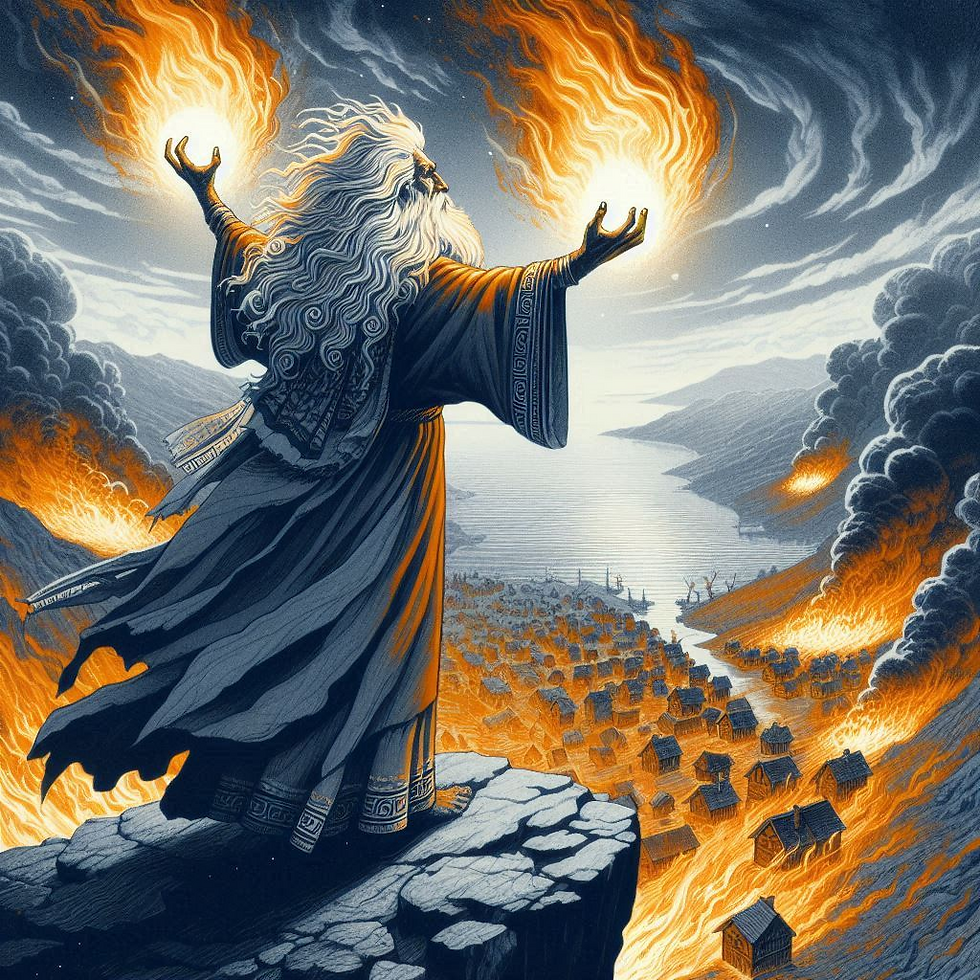Elijah was a prophet in Israel during a time when the nation was divided and many people had turned away from God to worship idols. His story is primarily found in the books of 1 Kings and 2 Kings.
Elijah’s Introduction and the Drought
Elijah first appears in 1 Kings 17:1, where he boldly declares to King Ahab, “As the Lord, the God of Israel, lives, whom I serve, there will be neither dew nor rain in the next few years except at my word.” This proclamation of a drought was a direct challenge to Baal, the Canaanite god of rain and fertility, whom many Israelites were worshipping.
Miracles at Zarephath
During the drought, God instructed Elijah to go to the town of Zarephath. There, he met a widow gathering sticks. Elijah asked her for some water and a piece of bread. The widow replied, “As surely as the Lord your God lives, I don’t have any bread—only a handful of flour in a jar and a little olive oil in a jug” (1 Kings 17:12). Elijah assured her that her supplies would not run out until the Lord sent rain on the land. Miraculously, “the jar of flour was not used up and the jug of oil did not run dry” (1 Kings 17:16).
Later, the widow’s son became ill and died. Elijah prayed to God, “Lord my God, let this boy’s life return to him!” (1 Kings 17:21). The Lord heard Elijah’s cry, and the boy’s life returned to him.
Confrontation on Mount Carmel
One of the most dramatic events in Elijah’s life was his confrontation with the prophets of Baal on Mount Carmel. Elijah challenged them to a contest to see whose god was real. He said, “How long will you waver between two opinions? If the Lord is God, follow him; but if Baal is God, follow him” (1 Kings 18:21).
The prophets of Baal called on their god from morning till noon, but there was no response. Elijah then built an altar to the Lord, dug a trench around it, and drenched it with water. He prayed, “Lord, the God of Abraham, Isaac and Israel, let it be known today that you are God in Israel and that I am your servant and have done all these things at your command” (1 Kings 18:36). Fire from the Lord fell and consumed the sacrifice, the wood, the stones, and even the water in the trench. The people fell prostrate and cried, “The Lord—he is God! The Lord—he is God!” (1 Kings 18:39).
Elijah’s Flight and God’s Whisper
After this victory, Queen Jezebel threatened Elijah’s life, and he fled into the wilderness. Feeling despondent, he prayed, “I have had enough, Lord. Take my life; I am no better than my ancestors” (1 Kings 19:4). An angel provided him with food and water, and he traveled for forty days and forty nights to Mount Horeb.
There, the Lord spoke to Elijah not in a powerful wind, an earthquake, or a fire, but in a gentle whisper. God reassured Elijah that he was not alone and that there were still seven thousand in Israel who had not bowed to Baal (1 Kings 19:18).
Elijah’s Departure
Elijah’s ministry ended in a miraculous way. As he and his successor, Elisha, were walking together, “suddenly a chariot of fire and horses of fire appeared and separated the two of them, and Elijah went up to heaven in a whirlwind” (2 Kings 2:11). Elisha picked up Elijah’s cloak, symbolizing the transfer of prophetic authority.
Elijah’s story is a powerful reminder of God’s sovereignty, faithfulness, and the importance of remaining faithful to Him. If you have any specific questions or need more details, feel free to ask!


Comments